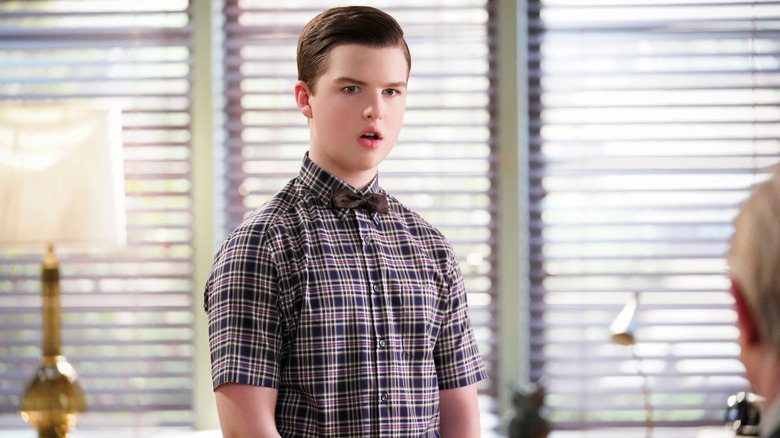
The prequel series Young Sheldon has dramatically transformed our understanding of the characters we thought we knew from The Big Bang Theory. Throughout 12 seasons of the original sitcom, viewers formed strong opinions about Sheldon Cooper’s family based solely on his often exaggerated and selective recollections. When Young Sheldon debuted in 2017, it offered an unprecedented window into the actual dynamics of the Cooper household, revealing nuances and contradictions that challenged long-held assumptions about everyone from Sheldon’s father to his seemingly unremarkable twin sister.
Perhaps most surprising was how Young Sheldon unveiled the complex emotional landscape that shaped each family member. Characters dismissed or vilified in Sheldon’s adult recollections emerged as multidimensional people wrestling with their own dreams and disappointments. The contrast between these portrayals forces viewers to question the reliability of adult Sheldon’s perspective and reconsider the formative experiences that molded not only the eccentric physicist but his entire family. What emerges is a poignant picture of how childhood experiences, and the way we choose to remember them, can profoundly shape our adult relationships and worldview.

Georgie’s Entrepreneurial Spirit Was Present From Childhood
Young Sheldon revealed that Georgie Cooper possessed remarkable business acumen from an early age, contradicting Sheldon’s characterization of his brother as unintelligent. The prequel shows Georgie identifying market opportunities, developing sales strategies, and displaying natural leadership abilities. These talents went largely unrecognized by his family, who measured intelligence solely through academic achievement.
This revelation transforms our understanding of Georgie from The Big Bang Theory, where his success with Dr. Tire was presented as a surprising outcome for someone Sheldon had dismissed. Young Sheldon demonstrates that Georgie’s later achievements weren’t accidental but the natural culmination of entrepreneurial instincts present since childhood. His early departure from education appears less a failure of ambition and more a pragmatic choice to pursue his natural strengths in an environment that narrowly defined success.
Adult Sheldon’s Unreliable Narration Colored Our Perception Of Everyone
Young Sheldon’s most profound impact on The Big Bang Theory is exposing adult Sheldon as a fundamentally unreliable narrator of his own childhood. The prequel reveals how selectively he remembered his family dynamics, minimizing positive aspects of his father, exaggerating his mother’s religiosity, and dismissing his siblings’ capabilities. This selective memory reflected Sheldon’s limited emotional intelligence and tendency to process experiences through his unique cognitive framework.
This recognition demands a reevaluation of countless family anecdotes Sheldon shared throughout The Big Bang Theory. Stories that once seemed merely humorous take on more complicated dimensions when contrasted with Young Sheldon’s more balanced portrayal. The prequel ultimately suggests that many of the quirks and defense mechanisms that defined adult Sheldon stemmed not from the dysfunctional family he described.
Missy’s Potential Was Squandered Due To Family Neglect
Young Sheldon revealed that Missy Cooper possessed her own form of intelligence that went largely unrecognized by her family. While not academically gifted like her twin brother, Missy demonstrated remarkable emotional intelligence, wit, and social adaptability, qualities that received minimal attention from her parents. As the show progressed, viewers witnessed Missy gradually realizing her achievements would never receive the celebration accorded to Sheldon’s accomplishments.
This systematic neglect explains why the adult Missy we briefly encountered in The Big Bang Theory seemed to have settled for an ordinary life despite her early potential. The prequel showed the Cooper family’s resources disproportionately channeled toward fostering Sheldon’s genius, leaving Missy to develop her capabilities without meaningful support. This revelation transforms our understanding of Missy from simply “Sheldon’s less intelligent sibling” to a person whose trajectory was significantly altered by family dynamics beyond her control.
Sheldon’s Genius Was Nurtured At The Expense Of His Siblings
Young Sheldon illustrates how the Cooper family completely reorganized around Sheldon’s intellectual needs at a considerable cost to his siblings. Financial resources were directed toward his education, family schedules arranged around his preferences, and parental attention monopolized by his academic pursuits. This reshaping of family life resulted in both Georgie and Missy receiving less support for their own developmental needs.
The long-term consequences of this imbalance become evident alongside The Big Bang Theory’s occasional glimpses of the adult Cooper siblings. Georgie’s early departure from education and Missy’s seemingly unfulfilled potential both trace back to childhood experiences where their needs were consistently subordinated to Sheldon’s. The prequel shows that Sheldon’s scientific achievements were facilitated by a family system that compromised the opportunities of his siblings.
George Sr. Was Actually A Loving Father, Not The Villain Sheldon Described
Perhaps the most dramatic reversal of perception concerns George Cooper Sr., characterized throughout The Big Bang Theory as father. Young Sheldon completely contradicts this portrayal, showing George as a dedicated, loving father who consistently supported his children’s interests, even when he struggled to understand Sheldon’s genius. George makes genuine efforts to connect with his intellectual son, from driving him to college classes to standing up for him against bullies.
The stark contrast between these portrayals suggests that adult Sheldon’s recollections were heavily filtered through his own limited perspective and the pain of losing his father at a young age. George Sr. emerges not as the villain of Sheldon’s childhood but as a complex man battling his own disappointments while striving to be a good father under challenging circumstances. This recontextualization raises questions about how many of Sheldon’s other family characterizations might be similarly distorted.
Mary Cooper’s Favoritism Created Lasting Family Dysfunction
Young Sheldon presents Mary Cooper not merely as the devout Christian mother from The Big Bang Theory, but as the architect of profound familial imbalance through her blatant favoritism toward Sheldon. The prequel series unflinchingly depicts Mary consistently prioritizing Sheldon’s needs, making excuses for his behavior while holding her other children to different standards.
This preferential treatment fostered visible resentment in both Georgie and Missy, who learned early that their mother’s attention and approval were contingent in ways Sheldon’s never were. The lasting impact of this favoritism becomes evident alongside the adult family dynamics hinted at in The Big Bang Theory.
Meemaw’s Wild Side Had Deep Emotional Roots
Connie “Meemaw” Tucker’s character in Young Sheldon adds substantial depth to the occasionally appearing grandmother from The Big Bang Theory. Rather than just the doting grandmother who indulged Sheldon, Young Sheldon reveals Meemaw as a complex woman navigating widowhood through gambling, drinking, and romantic relationships. These behaviors, often played for comedic effect, stem from profound grief over losing her husband and her struggle to redefine herself in his absence.
Beyond simple grandmotherly affection, their bond was built on mutual understanding of what it means to be different within the Cooper family. While Sheldon’s differences manifested through his intelligence, Meemaw’s emerged through her refusal to conform to traditional expectations for widowed grandmothers in small-town Texas. This shared experience of standing apart created a deeper connection between them than The Big Bang Theory ever fully explored.
